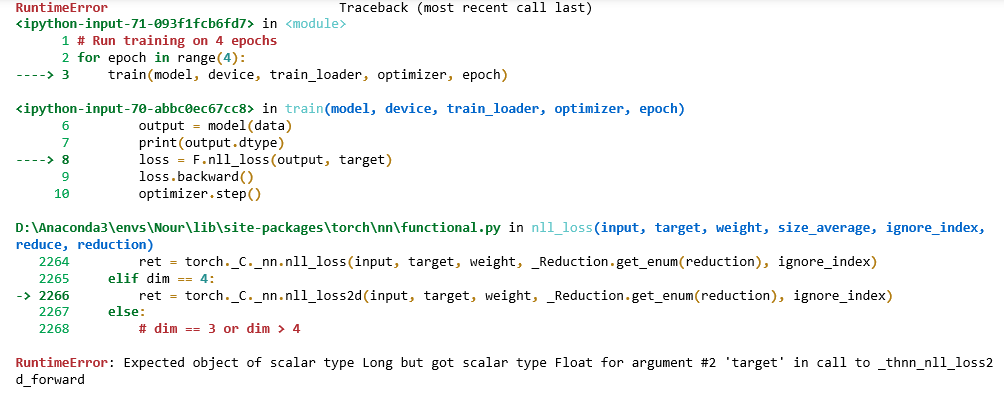I am trying to implement super resolution with a complex neural network using 91-image and set-5 datasets. I keep getting the following error at the loss functions:
This is my code
import torch
import torch.nn as nn
import torch.nn.functional as F
from torchvision import datasets, transforms
from complexLayers import ComplexBatchNorm2d, ComplexConv2d, ComplexLinear
from complexLayers import ComplexDropout2d, NaiveComplexBatchNorm2d
from complexFunctions import complex_relu, complex_max_pool2d
from datasets import TrainDataset, EvalDataset
from torch.utils.data.dataloader import DataLoader
batch_size = 64
trans = transforms.Compose([transforms.ToTensor(), transforms.Normalize((0.5,), (1.0,))])
train_set = TrainDataset('D:\complexPyTorch-master\SRCNN-pytorch-master\91-image_x2.h5')
train_loader = DataLoader(dataset=train_set,
batch_size=64,
shuffle=True,
num_workers=8,
pin_memory=True,
drop_last=True)
test_set = EvalDataset('D:\complexPyTorch-master\SRCNN-pytorch-master\Set5_x2.h5')
test_loader = DataLoader(dataset=test_set, batch_size=1)
class ComplexNet(nn.Module):
def __init__(self):
super(ComplexNet, self).__init__()
self.conv1 = ComplexConv2d(1, 64, kernel_size=9, padding=9 // 2)
self.conv2 = ComplexConv2d(64, 32, kernel_size=5, padding=5 // 2)
self.conv3 = ComplexConv2d(32, 1, kernel_size=5, padding=5 // 2)
#self.relu = complex_relu()
def forward(self,x):
x = complex_relu(self.conv1(x))
x = complex_relu(self.conv2(x))
x = self.conv3(x)
x = complex_relu(x) #this should have bene in init but it is placed here instead
#x = self.fc2(x)
x = x.abs()
#x = F.log_softmax(x)
return x
device = device = torch.device('cuda' if torch.cuda.is_available() else 'cpu')
model = ComplexNet().to(device)
optimizer = torch.optim.SGD(model.parameters(), lr=5e-3, momentum=0.9)
def train(model, device, train_loader, optimizer, epoch):
model.train()
for batch_idx, (data, target) in enumerate(train_loader):
data, target =data.to(device).type(torch.complex64), target.to(device)
optimizer.zero_grad()
output = model(data)
print(output.dtype)
loss = F.nll_loss(output, target)
loss.backward()
optimizer.step()
if batch_idx % 100 == 0:
print('Train Epoch: {:3} [{:6}/{:6} ({:3.0f}%)]\tLoss: {:.6f}'.format(
epoch,
batch_idx * len(data),
len(train_loader.dataset),
100. * batch_idx / len(train_loader),
loss.item())
)
for epoch in range(4):
train(model, device, train_loader, optimizer, epoch)
